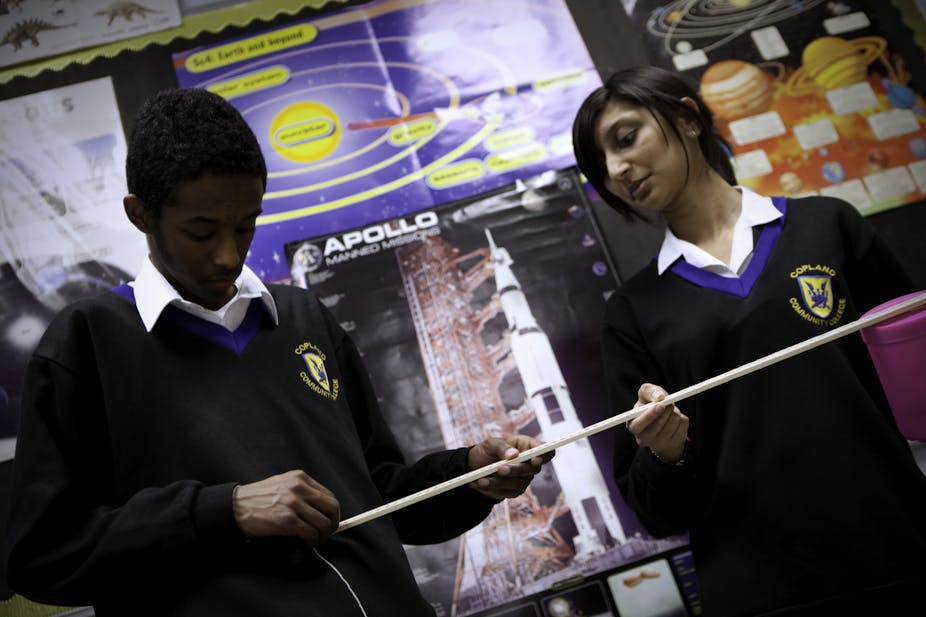In September 2013, I wrote for The Conversation about the way reform of A-level exams was being conducted and the worrying implications for subject content and assessment. These concerns were echoed by my colleagues in SCORE, a collaboration of leading science organisations, which I chair.
Soon after, Ofqual, the exams regulator, released its proposals for changes to the assessment of practical work in the A-level sciences. In particular, students’ performance in practical work would be assessed and reported separately from their A-level grade.
Despite many within the science community expressing grave concerns about the potential impact of these changes, Ofqual has now announced that the proposals have been agreed by their board.
The separate mark for practical work will be reported as a simple pass or fail on students’ certificates and will not contribute to their A-level grade. This approach suggests practical work is an add-on to the main activity of science – quite the opposite to the reality.
The interplay between the theoretical ideas and experiment and observation is what distinguishes the sciences from other subjects. Furthermore, the proposal means that a student could fail their practical competence test and still achieve an A*.
Little incentive
A-level grades are of significant importance to any school’s performance measures. The proposals do not currently explain how the practical competency mark would contribute to performance measures within the school accountability system.
As a result, the new assessment arrangements run the risk of schools prioritising students’ A-level grades over their practical training. Together with ever-present financial pressures, the new system is likely to lead to a diminution in the level of resourcing and amount of practical work undertaken in schools.
It is disappointing that one of the issues Ofqual aims to solve through its reforms is the lack of confidence in the lab and the field displayed by students entering higher education. Yet not only would its proposed change deprive students of an authentic scientific experience at A-level, it would leave them poorly equipped for progression in the sciences.
Another unfortunate feature is that there is now no incentive – and may not be any opportunity – for schools to require students to carry out an extended investigation during A-level studies. These allow students to develop many of the practical skills valued by universities and employers – from the planning and design of an experiment, through to analysing data, drawing conclusions and evaluating the process.
This experience also encourages independent decision-making, boosts confidence and enjoyment, and demonstrates working and thinking scientifically. Evidence shows that assessment through extended investigation helps differentiate student grades. It is also not subject to malpractice. Both of these are motivations behind Ofqual’s reform.
Fewer experiments
Practical work is integral to the sciences and must be assessed as such. Competencies in science cannot be learnt or taught in isolation: the process of doing science is integral to the process of thinking, working and behaving like a scientist.
And by restricting teachers to a minimum list of 12 practical experiments, the reform may limit opportunities to explore alternative investigations and could curtail activities in schools that already undertake more than the stipulated 12 experiments.
If, despite our concerns, the proposals proceed as planned, we would urge Ofqual to work closely with UCAS, university admissions departments and employers to clearly communicate the implications of separate marking in practical science assessment.
In particular, they must urgently consider how the changes can be acknowledged and supported in university admissions processes. Universities and employers need to be reassured of the validity of the separate practical endorsement and ensure that admissions tutors are encouraged to take the separate mark into account. It is also imperative that Ofqual carefully monitors schools as they undergo this change in order to understand the impact of reform on school behaviour.

